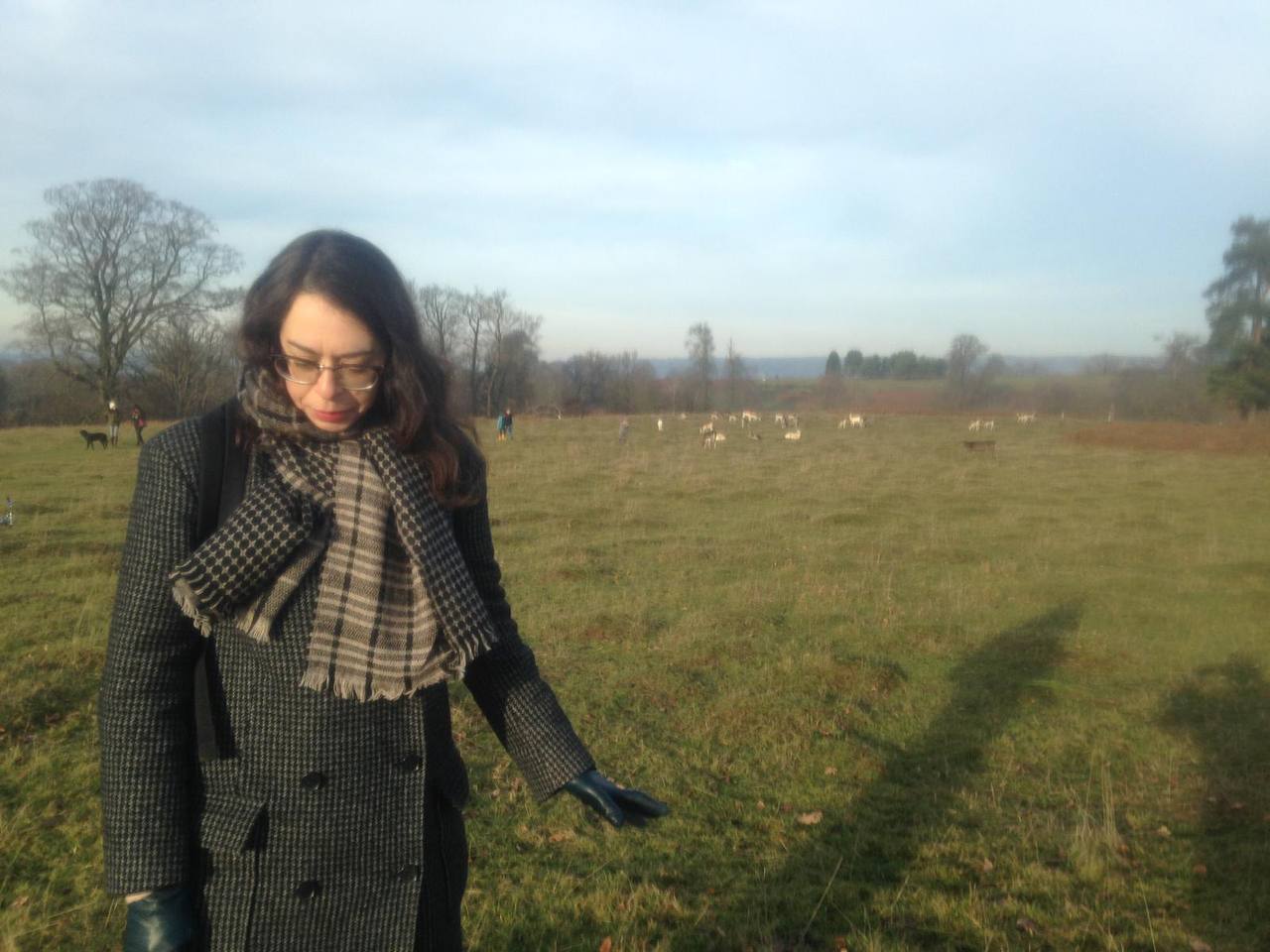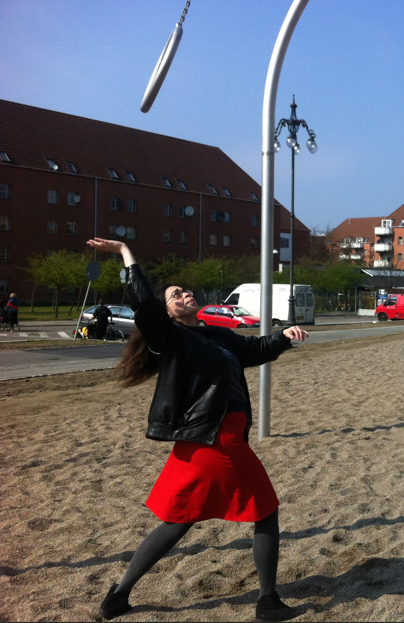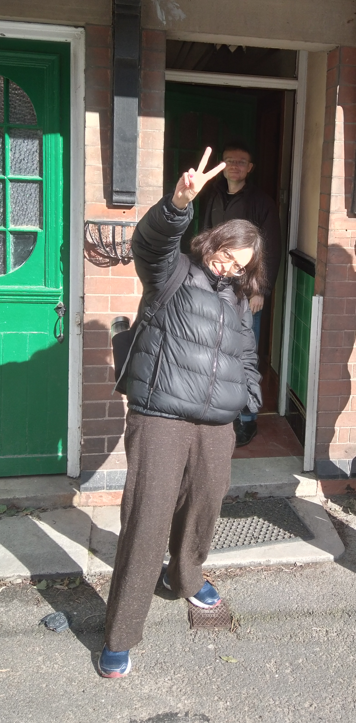Marina Vishmidt
Welcome to Marina Vishmidt Collected Works. These pages are a portal for the collection preserved on Memory of the World. The collection was created in loving memory of Marina.

Marina Vishmidt (1976-2024) was a American writer, editor, and critic born in Kharkiv in the former Soviet Union. She was Professor of Art Theory in the Department of Art Theory, University of Applied Arts, Vienna until April 2024. She was a fellow at the Leuphana Institute of Advanced Studies in Culture and Society, Lüneburg, 2024, held the Rudolph Arnheim Guest Professorship in Art History, Humboldt University, Berlin, April–September 2022 and held a Visiting Professorship at the Department of Critical and Cultural Theory, Södertörn University, Stockholm, September 2020. She was a lecturer at the Centre for Cultural Studies at Goldsmiths University of London 2016–2023 and taught art theory at the Netherlands Art Institute in Arnhem 2014–2018.
Marina’s theoretical work was primarily concerned with the connection between art, value, and labour, focusing on the increasing dissolution of international financial markets and their influence on subjectivation in the artistic field. Developing these common themes over a number of collaborations Marina wrote regularly with interlocutors Melanie Gilligan, Anthony Iles, Zoe Sutherland and Kerstin Stakemeier and developed writing, public talks and other collaborations with artists Ruth Buchanan, Caye Castagnetto, Melanie Gilligan, Em Hedditch, Blaise Kirschner, Karolin Meunier, David Panos, Grace Schwindt. Melissa Gordon, as well as her partner, poet Danny Hayward. Vishmidt published her writing in magazines and journals such as Mute, Afterall, Historical Materialism, Radical Philosophy, South Atlantic Quarterly, Texte zur Kunst, Ephemera, Kaleidoscope, Variant and OPEN!. She was on the editorial board of the book series New Perspectives on the Critical Theory of Society (Bloomsbury Academic) and the journal South as a State of Mind. Publications include: Speculation as a Mode of Production: Forms of Value Subjectivity in Art and Capital (2018), Reproducing Autonomy: Work, Money, Crisis and Contemporary Art (2016).

Film was an early and enduring interest for Marina. As an artist-filmmaker she made a number of artist films soon after arriving in London in the early–2000s, participating in screenings and exhibitions internationally and exhibiting her film Me Plus Ultra at Century Gallery in London in 2002. She worked as at the Ritzy and then Lux Cinemas and participated in worker-organising when the Lux’s funding was withdrawn and the trustees took the company into liquidation and laid off the staff in October 2001. Through friends and colleagues at these jobs Marina became involved with the Cinenova collective, which preserves and distributes the work of feminist film and video makers. Marina went on to co-organise numerous screenings and exhibitions with the Cinenova collective (Reviews A7l:f344). From 2007 to 2015 Marina contributed to the peripatetic film screening and publishing collective Full Unemployment Cinema screening films about and against work in, often occupied or self-organised spaces, in London and elsewhere.
Marina’s earliest writing developed around music and social commentary, publishing zines as Miss Mary Mack from a young age, participating in the burgeoning US zine culture of the 1990s and corresponding widely with other self-publishers and writers in this scene. Her early adult writing began in London writing on film, gender and social reproduction for the Mary Kelley Project and subsequently on film, commodification, class and gender for Mute magazine and website Metamute. Marina remained close to, and informed several collective projects throughout her life: the Copenhagen Free University, Mute, Cinenova, Full Unemploment Cinema, the Social Reproduction Reading group, the Crisis Social discussion meetings, WAGE, Marxism in Culture lecture series; each of these forums were environments where Marina’s sharp and generous intellectual contributions, conviviality and humour were felt. In turn these environments informed her thinking, organising work and friendships. Reaching by the end of her writing career some of the most prestigious publishers and academic journals, Marina’s writing remained prolific, promiscuous and equally committed to both art, academic and more underground, or self-organised, publishing initiatives. Marina’s extensive personal correspondence, often developing into long-standing intellectual friendships and exchanges, began from her zinester beginnings and continued to proliferate and expand until the end of her life.
As an editor Marina surveyed London’s media arts scene in Media Mutandis: a NODE.London Reader (2006); explored the foundering of the state in conditions of globalisation with designers Metahaven in Uncorporate Identity (2010); coedited with artist Melissa Gordon the magazine Persona addressed the question of women’s work, and used the lens of the feminist critique of unpaid labour to look at the contemporary condition of the artist while later issues encompassed discussions on embarrassment, refusal, interiority and identification. In Anguish Language: Writing and Crisis, with John Cunningham, Anthony Iles and Mira Mattar, (2015), Marina engaged with the social consequences of the 2007–8 financial crisis through imaginative language and writing; and reexamined risk, organisation and contingency in Look at Hazards, Look at Losses (2017) with Anthony Iles and Group for Conceptual Politics. The anthology Speculation (2023) edited by Marina for the Whitechapel and MIT Press series Documents of Contemporary Art developed her monograph Speculation in directions illuminated by both science and social fiction.
As a board member for WAGE (Working Artists and the Greater Economy), a member of the Marxism in Culture collective, through reading groups, discussions and her activity as a trade unionist with Goldsmiths UCU Marina continued to develop her practical and theoretical politics marked, as ever, by singularly memorable contributions to collective engagements with labour, work refusal, feminism and social reproduction.
